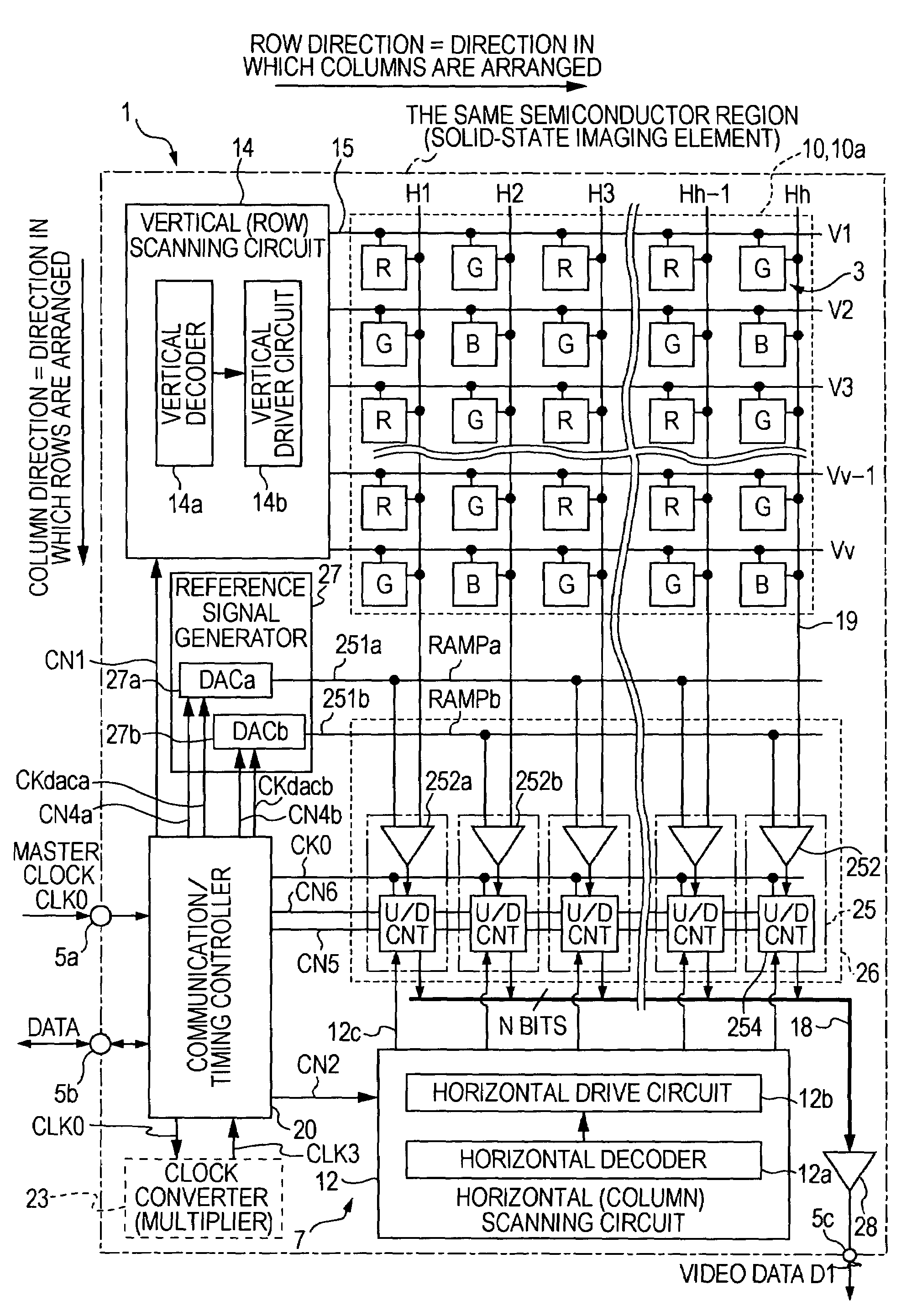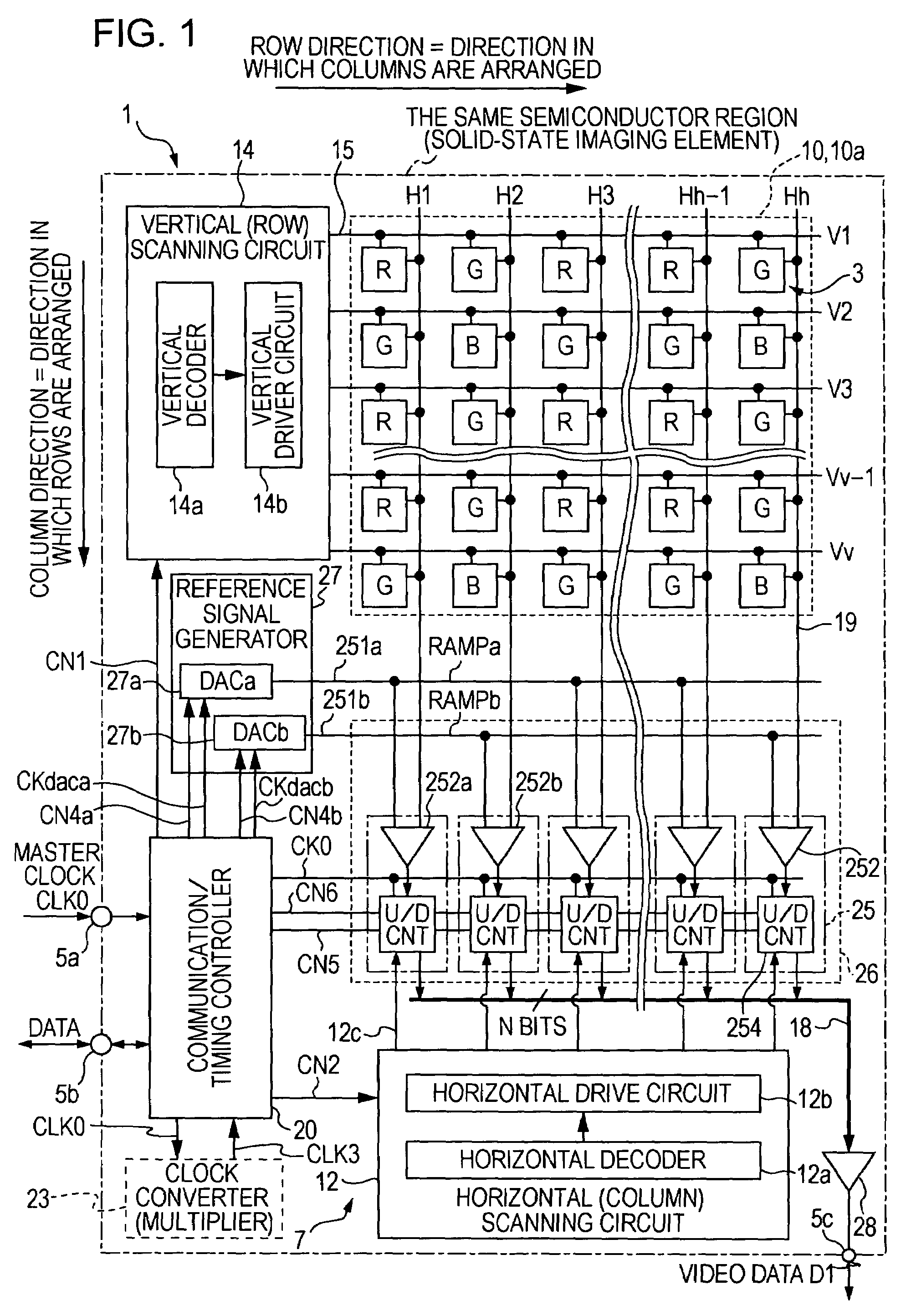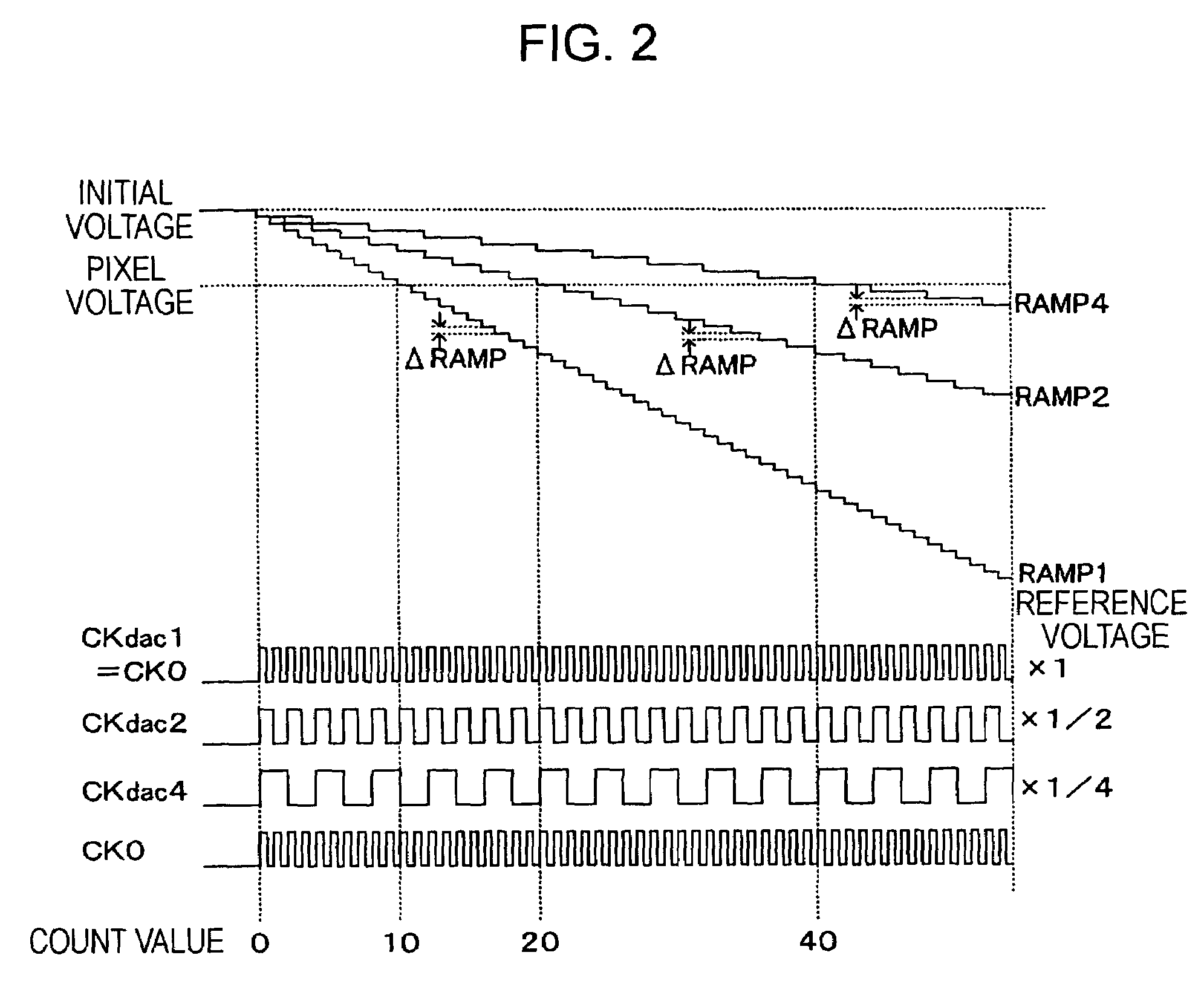Digital-to-analog converter, analog-to-digital converter, and semiconductor device
a digital converter and analog-to-digital converter technology, applied in the field of digital-to-analog converters, analog-to-digital converters, semiconductor devices, can solve the problems of difficult to obtain stable analog signals, difficult to perform latching reliably and quickly to select current source cells,
- Summary
- Abstract
- Description
- Claims
- Application Information
AI Technical Summary
Benefits of technology
Problems solved by technology
Method used
Image
Examples
Embodiment Construction
[0037]An embodiment of the present invention is described in detail below with reference to the accompanying drawings in the context of a CMOS-type imaging device, which is an example of an X-Y address solid-state imaging device. A description is given below, assuming that all pixels used in the CMOS-type imaging device are NMOS or PMOS pixels.
[0038]The CMOS-type imaging device is an example only, and the type of device used in the following embodiment is not restricted to a MOS imaging device, and the following embodiment is applicable to all physical-quantity-distribution detecting semiconductor devices including a plurality of unit elements which are disposed in a line or matrix and which are responsive to electromagnetic waves, such as light or radiation, input from an external source.
Configuration of Solid-state Imaging Device
[0039]FIG. 1 is a schematic diagram illustrating a CMOS-type solid-state imaging device (CMOS-type image sensor) 1, which serves as a semiconductor device...
PUM
 Login to View More
Login to View More Abstract
Description
Claims
Application Information
 Login to View More
Login to View More - R&D
- Intellectual Property
- Life Sciences
- Materials
- Tech Scout
- Unparalleled Data Quality
- Higher Quality Content
- 60% Fewer Hallucinations
Browse by: Latest US Patents, China's latest patents, Technical Efficacy Thesaurus, Application Domain, Technology Topic, Popular Technical Reports.
© 2025 PatSnap. All rights reserved.Legal|Privacy policy|Modern Slavery Act Transparency Statement|Sitemap|About US| Contact US: help@patsnap.com



